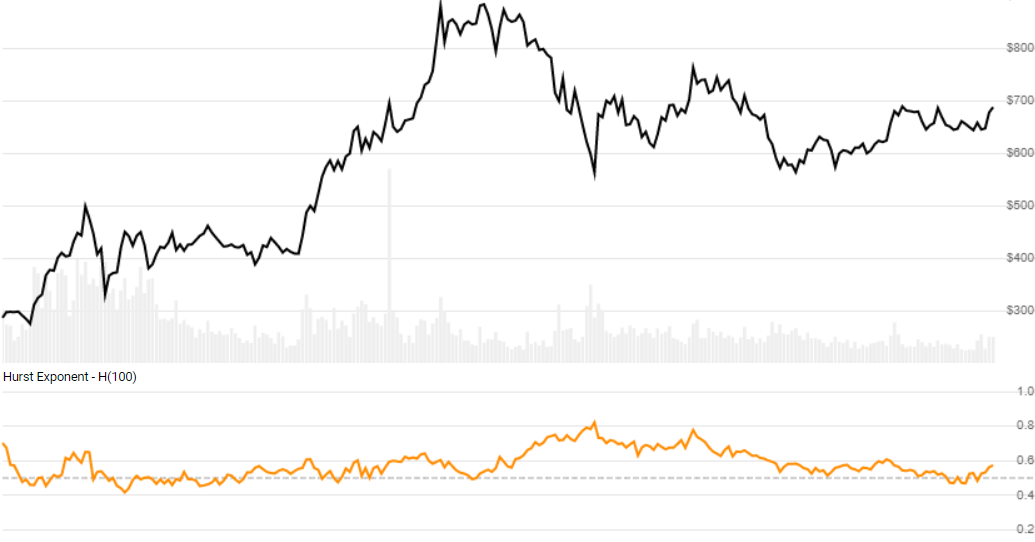Hurst Exponent
get_hurst(quotes, lookback_periods=100)
Parameters
| name | type | notes |
|---|---|---|
quotes | Iterable[Quote] | Iterable of the Quote class or its sub-class. • See here for usage with pandas.DataFrame |
lookback_periods | int, default 100 | Number of periods (N) in the Hurst Analysis. Must be greater than 20. |
Historical quotes requirements
You must have at least N+1 periods of quotes to cover the warmup periods.
quotes is an Iterable[Quote] collection of historical price quotes. It should have a consistent frequency (day, hour, minute, etc). See the Guide for more information.
Return
HurstResults[HurstResult]
- This method returns a time series of all available indicator values for the
quotesprovided. HurstResultsis just a list ofHurstResult.- It always returns the same number of elements as there are in the historical quotes.
- It does not return a single incremental indicator value.
- The first
Nperiods will haveNonevalues since there’s not enough data to calculate.
HurstResult
| name | type | notes |
|---|---|---|
date | datetime | Date |
hurst_exponent | float, Optional | Hurst Exponent (H) |
Utilities
See Utilities and Helpers for more information.
Example
from stock_indicators import indicators
# This method is NOT a part of the library.
quotes = get_historical_quotes("SPY")
# Calculate 20-period Hurst
results = indicators.get_hurst(quotes, 20)
About Hurst Exponent
The Hurst Exponent (H) is part of a Rescaled Range Analysis, a random-walk path analysis that measures trending and mean-reverting tendencies of incremental return values. When H is greater than 0.5 it depicts trending. When H is less than 0.5 it is is more likely to revert to the mean. When H is around 0.5 it represents a random walk. [Discuss] 💬
